Tinubu Calls for Commonwealth Support as Nigeria Bids to Host 2030 Centenary Games President Bola Ahmed Tinubu has urged member nations of the Commonwealth to throw their weight behind Nigeria’s bid to host the 2030 Commonwealth Games, marking the centenary edition of the historic sporting event. The Nigerian leader emphasized that in the 100 years
Tinubu Calls for Commonwealth Support as Nigeria Bids to Host 2030 Centenary Games

President Bola Ahmed Tinubu has urged member nations of the Commonwealth to throw their weight behind Nigeria’s bid to host the 2030 Commonwealth Games, marking the centenary edition of the historic sporting event. The Nigerian leader emphasized that in the 100 years of the Games’ existence, no African nation has ever hosted the competition, calling it a glaring omission that must be corrected.
Taking to his official 𝕏 (formerly Twitter) account on Wednesday, Tinubu declared that it was time for Africa to take its place as host, with Nigeria leading the charge. He argued that awarding Nigeria the hosting rights would not only complete a symbolic circle of unity but also send a strong message that Africa is central to the Commonwealth’s future.
FIRS Defends Federal Government’s Borrowing Strategy, Calls Debt A Sustainable Tool
A Call for Unity Through Sport
In his message, Tinubu described Nigeria as the “gateway” and Africa as the “stage” for the Commonwealth family to come together in 2030. He framed the bid as a moment for inclusivity and global recognition of Africa’s role in shaping the Commonwealth.
“To the Commonwealth Family, it is time for Africa,” Tinubu wrote. “After 100 years of the Commonwealth Games, they have never been hosted on African soil. By bringing the Commonwealth Centenary Games to Nigeria in 2030, you will send a powerful message that every region of the Commonwealth matters, and that Africa is not only part of the story, but central to its future.”
He concluded his message with an appeal to unity and history: “Nigeria is the gateway. Africa is the stage. The Commonwealth is the family. Let us make history together in 2030. Let us complete the circle of Commonwealth unity. The dream must be realized. The time is now.”
Nigeria’s Readiness to Host
This is not the first time President Tinubu has expressed confidence in Nigeria’s ability to deliver a successful Commonwealth Games. Earlier, when he received the Commonwealth Sport Bid Evaluation Committee at the Presidential Villa in Abuja, the President—represented by his Chief of Staff, Femi Gbajabiamila—assured the delegation that Nigeria has both the capacity and the commitment to host the centenary edition.
According to Tinubu, Nigeria is ready to provide world-class facilities, logistical support, and security to ensure that the event is not only memorable but also reflective of Africa’s diversity and potential. He described the 2030 Games as an opportunity for Nigeria to showcase its growing infrastructure, vibrant culture, and youthful energy to the world.
Why the 2030 Games Matter
The Commonwealth Games, first held in 1930, will mark its 100th anniversary in 2030. Over the decades, the Games have rotated among member nations in Europe, Asia, the Americas, and Oceania. Yet, despite Africa’s long-standing membership and participation, the continent has never been given the opportunity to host.
Nigeria’s bid to host the Games in 2030 therefore carries symbolic weight, representing an effort to make the competition more inclusive. Supporters of the bid argue that granting Africa hosting rights would not only boost the continent’s global sporting profile but also strengthen unity within the Commonwealth.
Economic and Social Benefits
If successful, Nigeria’s bid could generate significant economic and social benefits. Major sporting events typically drive investments in infrastructure, including stadiums, transport networks, and hospitality. In addition, the Games would create jobs, promote tourism, and enhance Nigeria’s reputation on the global stage.
Experts believe that hosting the Commonwealth Games could also provide a morale boost for Nigeria’s youthful population, offering opportunities for athletes, creatives, and entrepreneurs. Furthermore, it could strengthen sports development across the continent, inspiring a new generation of African talent.
Challenges Ahead
Despite Nigeria’s enthusiasm, challenges remain. Hosting an international sporting event of this scale requires enormous financial investment, robust infrastructure, and foolproof security arrangements. Critics argue that Nigeria must first address pressing domestic issues such as economic instability, infrastructure gaps, and insecurity to make the bid credible.
Nonetheless, Tinubu and his administration have projected confidence, insisting that Nigeria’s growing experience in organizing large-scale events, such as the All Africa Games and FIFA youth tournaments, has prepared the country for the task.
Global Reactions
Tinubu’s call has already sparked debate within sporting and political circles. Advocates of the bid have welcomed the push, describing it as a long-overdue recognition of Africa’s role within the Commonwealth. Others, however, remain cautious, questioning whether Nigeria can overcome its logistical and financial hurdles in time for 2030.
Observers note that winning the bid will depend heavily on Nigeria’s diplomatic engagements with other Commonwealth nations and the ability to present a convincing case to the Commonwealth Games Federation (CGF).
President Bola Tinubu’s passionate call for Nigeria to host the 2030 Commonwealth Games represents both an appeal for fairness and an effort to position Africa at the center of the Commonwealth’s future. By framing Nigeria as the “gateway” and Africa as the “stage,” Tinubu has outlined a vision that goes beyond sports—one that ties together unity, recognition, and inclusion.
As the Commonwealth considers its options for the Games’ centenary edition, Nigeria’s bid highlights a crucial point: after a century of history, the Commonwealth Games have yet to come to Africa. For Tinubu, the time has come to change that narrative—and make history in 2030.


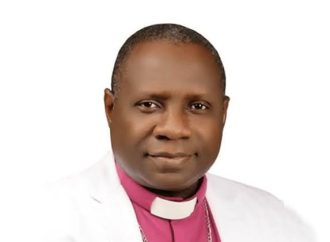
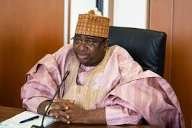
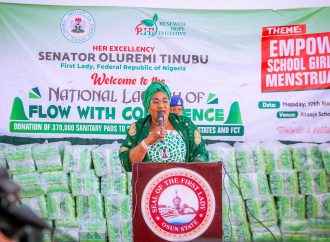
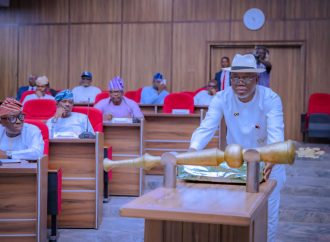
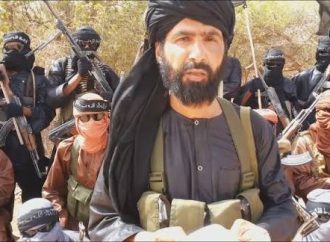




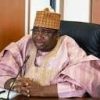
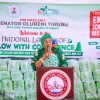





Leave a Comment
Your email address will not be published. Required fields are marked with *